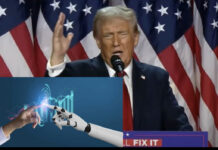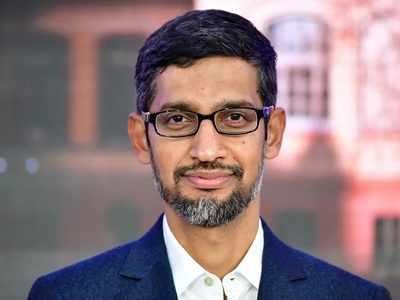As 2024 draws to a close, Google CEO Sundar Pichai has set the tone for what he described as a “challenging but crucial year ahead” during a recent 2025 strategy meeting with employees. Held last week, the gathering outlined the company’s roadmap amidst a rapidly evolving tech landscape characterized by heightened competition, global regulatory challenges, and significant advancements in artificial intelligence (AI).
According to audio obtained by CNBC. “I think 2025 will be critical,” Pichai said. “I think it’s really important we internalize the urgency of this moment, and need to move faster as a company. The stakes are high. These are disruptive moments. In 2025, we need to be relentlessly focused on unlocking the benefits of this technology and solve real user problems.”
A Vision for 2025: Innovation and Competition
Pichai emphasized that 2025 will be pivotal for Google as it navigates an increasingly crowded market, particularly in AI. “The stakes are high,” he said, signaling that the company must stay ahead of rivals who are also investing heavily in AI technologies. To this end, Google plans to roll out a suite of AI-driven features in the first half of the year. These innovations aim to strengthen the company’s foothold across its core products, from Search to Workspace, and to redefine user experiences in a fiercely competitive environment.
While Pichai did not delve into specific product details, industry speculation suggests that Google could unveil enhancements to Bard, its AI chatbot, and integrate advanced AI capabilities into its search engine to maintain leadership in the space.
Regulatory Pressures on the Horizon
Pichai acknowledged that 2025 will not only test Google’s technological prowess but also its ability to navigate global scrutiny. “We are facing scrutiny across the world,” he noted, referring to mounting regulatory challenges related to antitrust concerns, data privacy, and AI governance. With governments worldwide introducing stricter policies to oversee big tech companies, Google must balance innovation with compliance.
The EU’s Digital Services Act (DSA) and Digital Markets Act (DMA) are likely to shape the company’s operations in Europe, while ongoing legal battles in the U.S. could redefine Google’s business model. These pressures will require Google to work closely with regulators and adapt to a changing legal landscape, even as it pushes the boundaries of AI.
Rallying the Workforce
In his address, Pichai stressed the importance of collaboration and resilience, urging employees to rise to the challenges of the year ahead. “It will be a challenging year, but it’s also an opportunity to showcase our leadership in innovation and responsibility,” he said. This call to action reflects Google’s focus on maintaining its reputation as both a technological trailblazer and a socially responsible organization.
The meeting’s message was clear: 2025 is not just another year for Google—it is a defining moment. Success will depend on the company’s ability to innovate faster than its competitors while addressing regulatory demands with transparency and accountability.
Conclusion
As Google prepares for 2025, the stakes are indeed high. With AI advancements at the heart of its strategy and a global regulatory microscope trained on its every move, the year promises to be a litmus test for the company’s vision and adaptability. For employees, shareholders, and industry observers alike, all eyes will be on Google to see if it can rise to the occasion and maintain its dominance in the tech world.












































